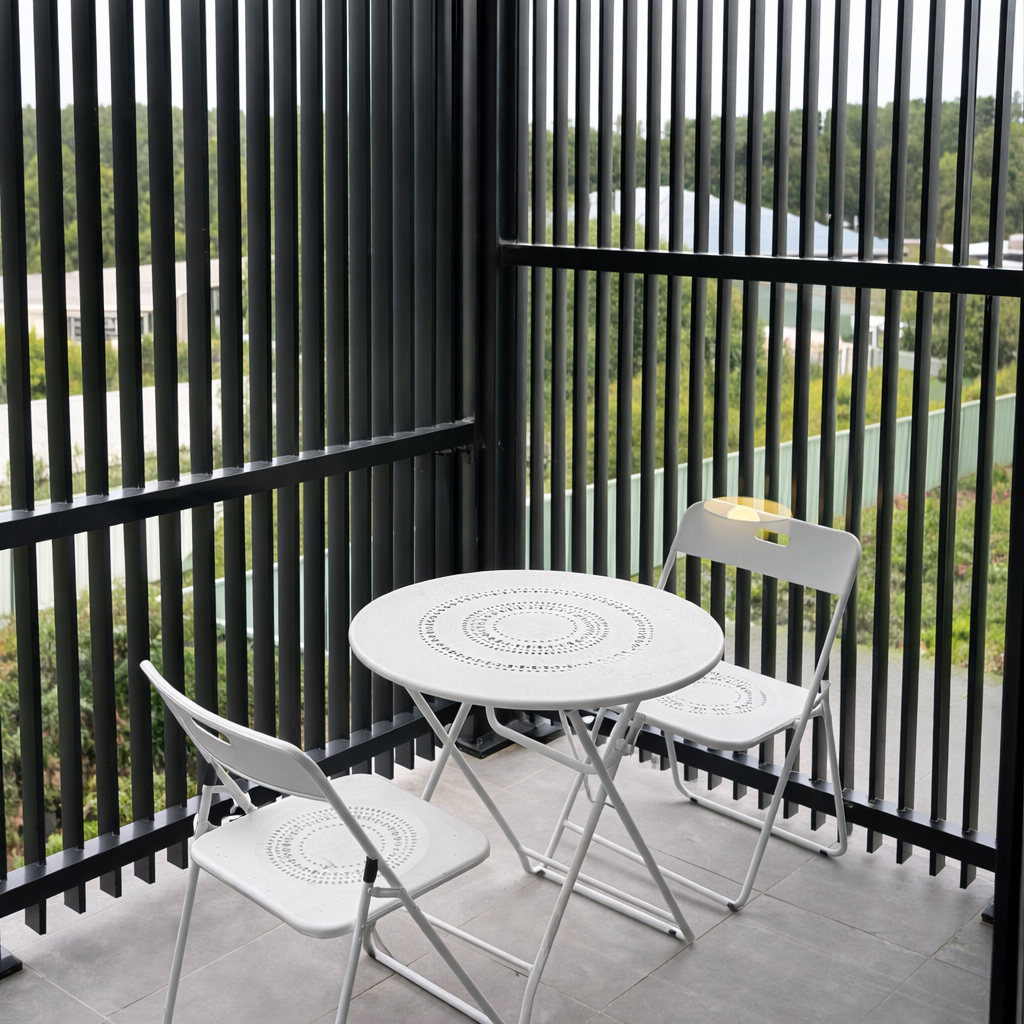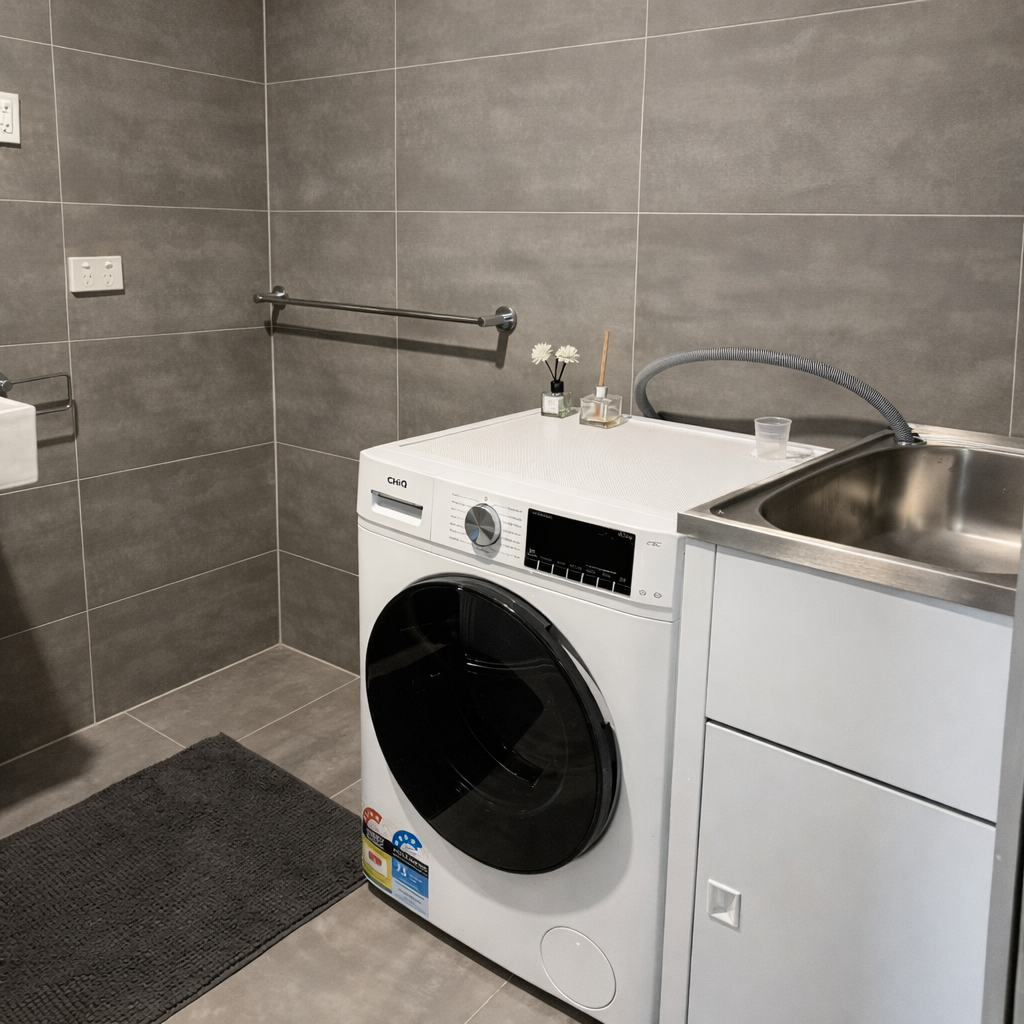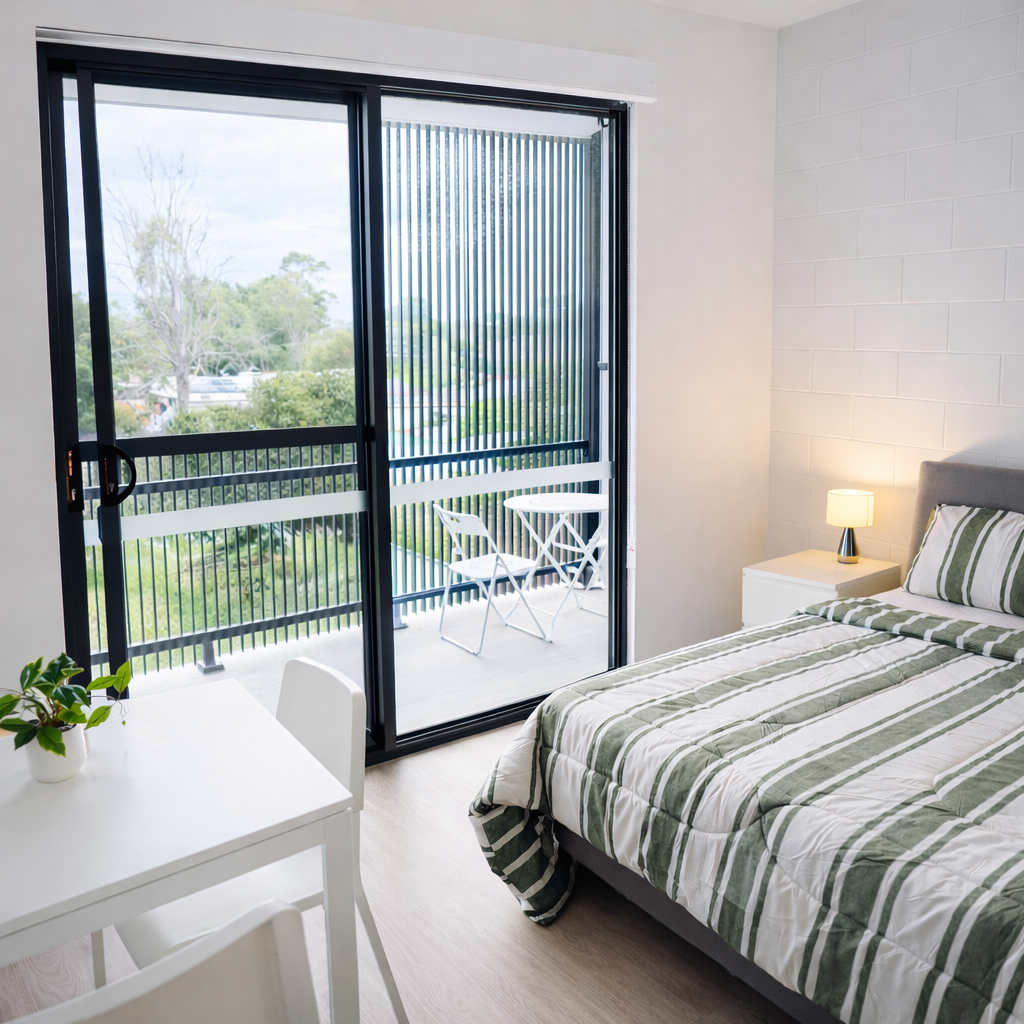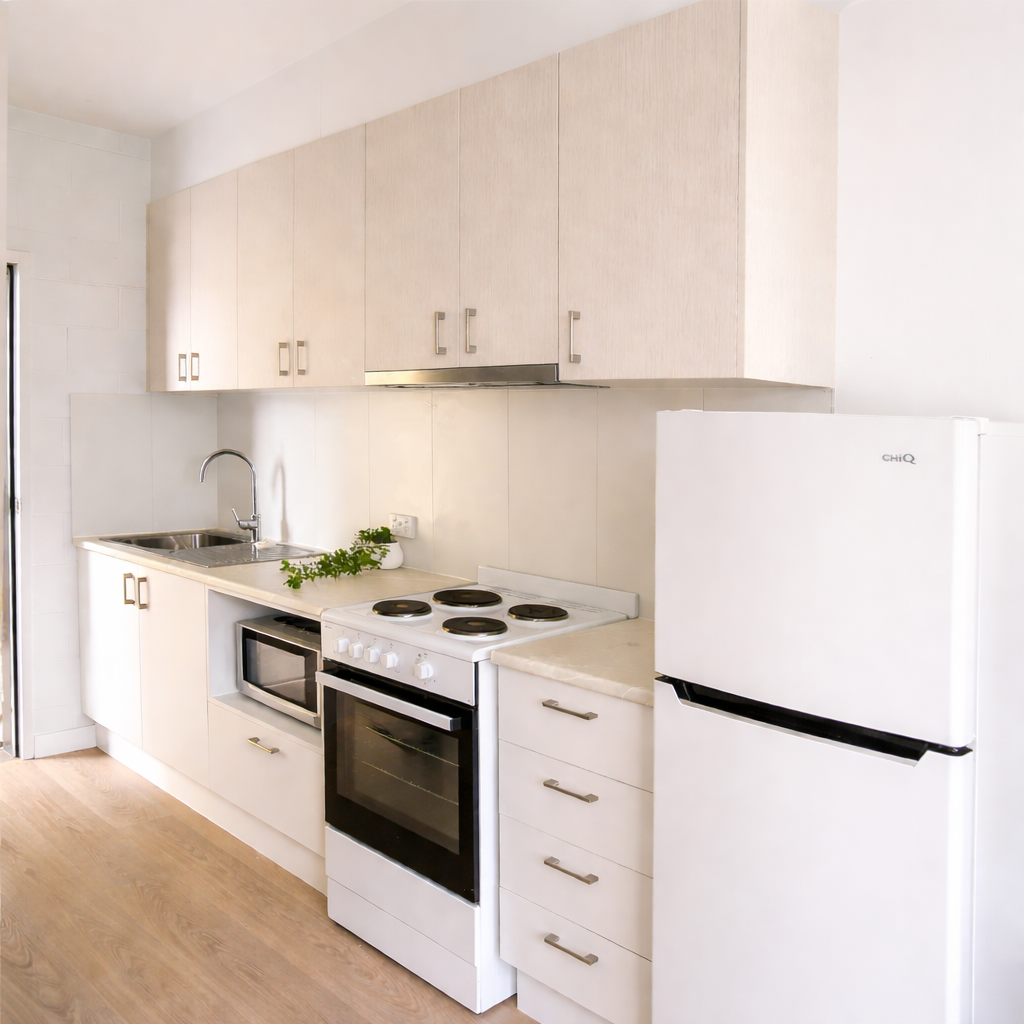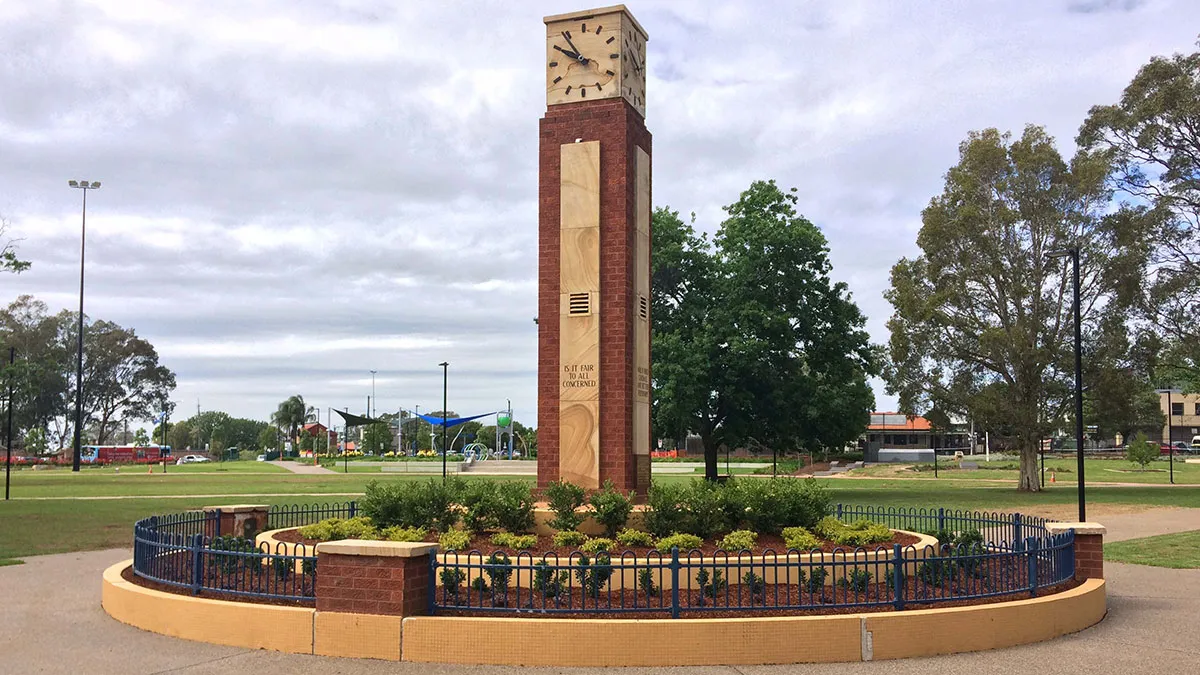NDIS Accommodation for People with Psychosocial Disabilities
Your home, your way. Experience the freedom of independent living at our homes tailored for people living with psychosocial disabilities. Choose your ideal location and be part of a supportive community environment, committed to helping you live the life you want.
Vacancies
No result found!
Accommodation for People with Psychosocial Disabilities
Supported Independent Living (SIL)
Maybe you dream of having your own space but need a hand with managing your finances or keeping things organised. Supported Independent Living (SIL) provides support tailored to your specific needs, helping you build confidence and independence in a comfortable and familiar environment.
The Benefits of SIL for People with Psychosocial Disabilities
- Daily Living Assistance: Need a hand with cooking healthy meals or keeping your place tidy? SIL can provide support with these essential daily tasks, freeing you up to focus on what matters most.
- Financial Management: Developing budgeting skills and managing your finances can be a significant challenge. SIL can offer assistance with creating budgets, paying bills on time, and keeping track of your spending.
- Support Workers: Sometimes, having a helping hand can make a world of difference. Support workers can assist you with daily living tasks like cleaning, grocery shopping, and medication management. They can also offer companionship and emotional support, developing a sense of connection and well-being.
- Developing Healthy Routines: Establishing healthy sleep patterns, regular exercise routines, and balanced meals are crucial for maintaining good mental health. SIL support workers can help you develop personalised routines that contribute to your overall well-being.
- Medication Management: Taking medication as prescribed is essential for managing some psychosocial disabilities. SIL can provide reminders and support to ensure you stick to your medication schedule.
- Advocacy and Support: Navigating the healthcare system and accessing community services can be daunting. SIL providers can advocate on your behalf and connect you with essential resources to support your recovery journey.
- Building Social Connections: Social connection is vital for everyone. SIL support workers can help you develop strategies to build positive relationships and connect with your community. They can also offer companionship and emotional support, fostering a sense of belonging and reducing feelings of isolation.
- Therapy and Counselling: Talking to a qualified therapist can be a powerful tool for managing symptoms, finding coping mechanisms, and developing positive mental health practices. The NDIS can fund individual and group therapy sessions, allowing you to explore your challenges and work towards resilience.
SDA Accommodation
Specialist Disability Accommodation (SDA) is designed for people who require significant modifications to their living environment, giving you the right conditions to live safely and comfortably. Imagine a home that is fully accessible, with features like wider doorways, grab bars in the bathroom, lowered kitchen benches, and visual alarms. These modifications can make a world of difference for people living with psychosocial disabilities who may also have mobility or sensory processing challenges.
The Benefits of SDA for People with Psychosocial Disabilities:
- SDA homes are designed to remove physical barriers and promote independence, allowing you to navigate your living space with ease.
- Modifications minimise the risk of accidents and injuries, providing peace of mind that the space you’re living in is safe.
- A well-designed SDA home can significantly enhance comfort and well-being, creating a sense of control and ownership over your environment.
- Best of all, you can choose the level of modifications needed to suit your specific requirements, ensuring a personalised living space that feels well and truly yours.
Short Term Accommodation (STA)
Let’s face it, sometimes everyone needs a break, Whether you're experiencing a temporary crisis, need time to focus on your recovery, or simply want a change of scenery, Short Term Accommodation (STA) offers a supportive environment for a short stay. This could be a weekend getaway or a longer period of respite care, depending on your individual needs.
The Benefits of STA for People with Psychosocial Disabilities
- A Change of Scenery: Sometimes, a fresh environment can do wonders for your mental health. STA offers a chance to escape your daily routine and focus on self-care in a supportive and safe setting.
- Focus on Relaxation and Recuperation: Whether it's pursuing mindfulness practices, engaging in creative activities, or simply getting some rest, STA provides a space to recharge and focus on your well-being.
- A Break for Your Carer: STA also gives your carer a chance to take their foot off the gas. They can rest and recharge, safe in the knowledge you’re in a caring environment that gives you the support you’re used to.
- Continued Professional Care and Support: Staying connected with your support network is important during your stay. STA providers ensure you receive continued professional care, medication management, and access to necessary resources.
- Building Social Connections: STA environments can offer opportunities to meet new people and participate in social activities, promoting a sense of community and reducing feelings of isolation.
Medium Term Accommodation
Medium Term Accommodation (MTA) offers a temporary living solution for people with psychosocial disabilities who are transitioning between long-term housing options. This might be ideal if you're waiting for permanent housing to become available, or for home modifications to be completed on your current residence.
The Benefits of MTA for People with Psychosocial Disabilities
- Seamless Transitions: MTA provides a safe and supportive environment while you wait for your permanent home. This minimizes disruption to your daily routines and ensures continued access to essential support services.
- Tailored Support: Just like other NDIS accommodation options, MTA offers personalised support plans that cater to your specific needs. This ensures you feel comfortable and empowered throughout your temporary stay.
- Continuity of Care: Moving can be stressful, especially when managing a psychosocial disability. MTA bridges the gap by ensuring you receive uninterrupted care and support during the transition period.
Accessing NDIS Accommodation
Before you can secure NDIS accommodation options like SIL or SDA, you’ll need to have an NDIS plan in place. This plan details the funded support you're eligible for and how these funds can be used. During your NDIS planning meeting, it's crucial to discuss your housing needs to ensure accommodation is included in your plan.
Finding the Perfect Fit
When evaluating your accommodation options, consider several key factors:
- Support Needs: The level of support you require to feel safe and independent should be a top priority.
- Location, Location, Location: Think about proximity to family, essential services, and local amenities that enhance your well-being.
- Accessibility: Ensure the accommodation features meet your individual accessibility needs.
- Your Ideal Environment: Consider what kind of living environment fosters your comfort and overall well-being.
It's important to note that NDIS accommodation pricing is regulated and varies depending on the level of support offered and the location of the accommodation.
Frequently Asked Questions
The NDIS understands that living with a psychosocial disability can present challenges with daily tasks, social interaction, or maintaining emotional stability. That's why the NDIS offers a variety of support options specifically designed to empower you to live independently in a safe and comfortable environment.
These options include Supported Independent Living (SIL), Specialist Disability Accommodation (SDA), Short Term Accommodation (STA), and Medium Term Accommodation (MTA).
Supported Independent Living (SIL) provides in-home support tailored to your specific needs. This means you get to live in your own space, but with a helping hand to manage daily tasks like cooking, cleaning, and medication management.
SIL is a good option if you:
- Dream of having your own space but need a hand with daily tasks.
- Experience challenges with managing finances or maintaining a routine.
- Want to develop skills for independent living.
This is where Specialist Disability Accommodation (SDA) comes in. SDA is designed for people who require modifications to their living environment. Imagine a home that's fully accessible, with features like wider doorways, grab bars in the bathroom, lowered kitchen benches, and visual alarms. These modifications can make a world of difference for people with psychosocial disabilities who may also have mobility or sensory processing challenges.
There are four levels of modification in SDA homes:
- Improved Liveability: This offers basic accessibility features like wider doorways and grab bars, making your home slightly easier to navigate.
- Fully Accessible: This level removes most physical barriers with wider doorways, ramps, accessible showers, and features that cater to a wider range of mobility needs.
- Robust: Designed for high wear and tear, this includes reinforced surfaces, fixtures, and potential for future modifications to suit changing needs.
- High Physical Support (HPS): This features all of the above with additional elements like ceiling hoists, assistive technology integration, and emergency power solutions for those requiring the most extensive support for daily living.
The level of modification you need will depend on the nature of your disability. Some people may manage well with minor adjustments, while others may require a fully equipped and supported environment.
Yes, the NDIS offers Short Term Accommodation (STA) for temporary stays. Whether you're experiencing a temporary crisis, need time to focus on your recovery from a challenging period, or simply want a change of scenery, STA provides a supportive environment. This could be a weekend getaway or a longer period of respite care, depending on your personal needs.
If you're waiting for permanent housing to become available or for home modifications to be completed on your current residence, Medium Term Accommodation (MTA) bridges the gap. It offers a temporary living solution with continued support services to ensure a smooth transition.
Here's why MTA might be a good option for you:
- Seamless Transitions: MTA provides a safe and supportive environment while you wait for your permanent home. This minimises disruption to your daily routines and ensures continued access to essential support services.
- Tailored Support: Just like other NDIS accommodation options, MTA offers personalised support plans that cater to your specific needs. This ensures you feel comfortable and empowered throughout your temporary stay.
- Continuity of Care: Moving can be stressful, especially when managing a psychosocial disability. MTA bridges the gap by ensuring you receive uninterrupted care and support during the transitional period.
The NDIS application process can be complex. United for Care has a team of NDIS specialists who can guide you through every step. We can help you understand your accommodation options, gather necessary documentation for your NDIS assessment, and advocate for the support you deserve. Don't hesitate to reach out to our team for assistance.
If you’re new to the NDIS or considering an accommodation change, United for Care can help. Our industry expertise and deep understanding of living with psychosocial disabilities make us a reliable choice for your accommodation needs. With our Vertical Villages, we don’t just offer you a roof over your head, we give you a place to call home.
We believe in creating a supportive, inclusive environment where you’re empowered to live your best life, giving you the perfect blend of support and freedom. We’ll make sure your accommodation and support are built around your amazing personality and what makes you, you!









.webp)
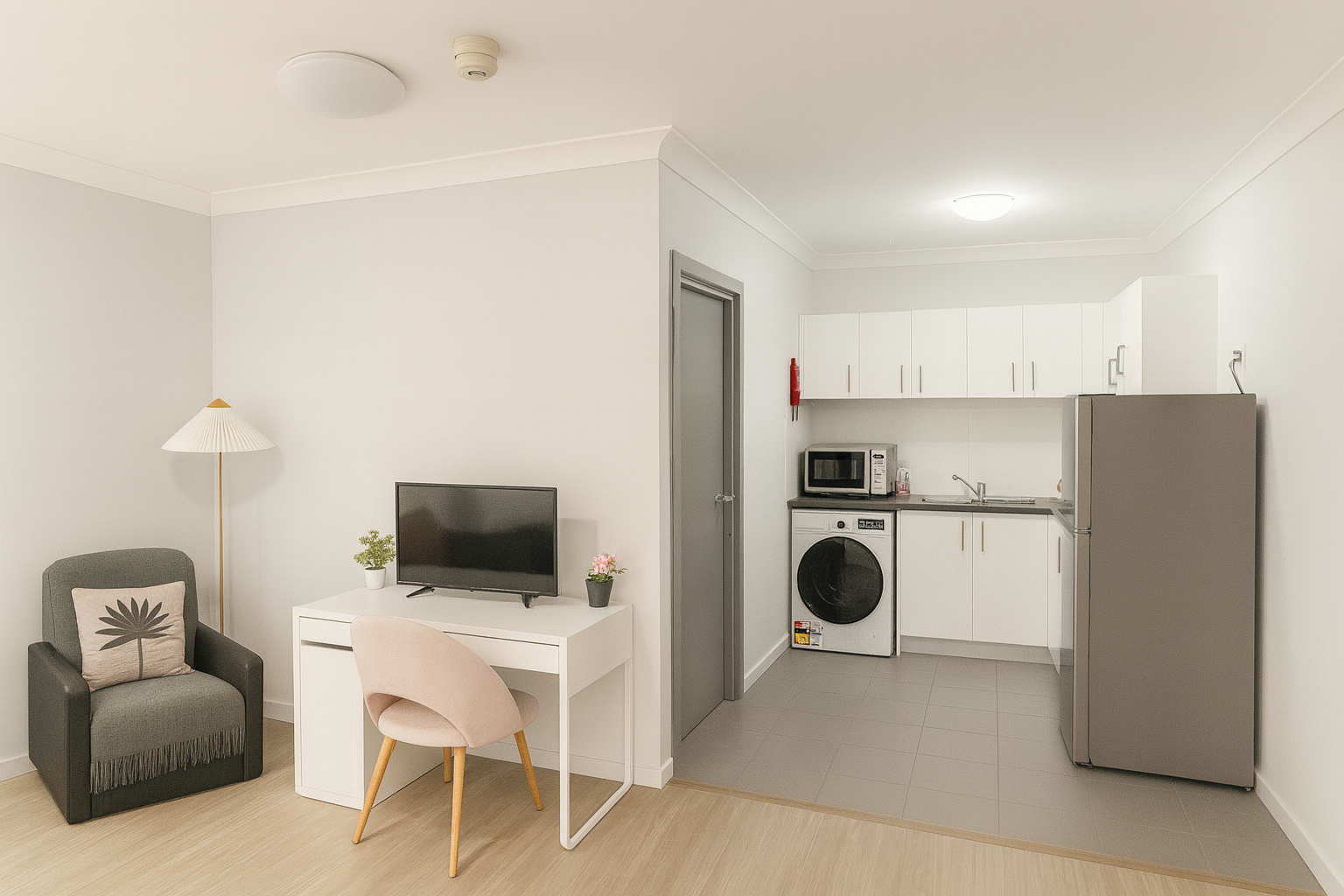
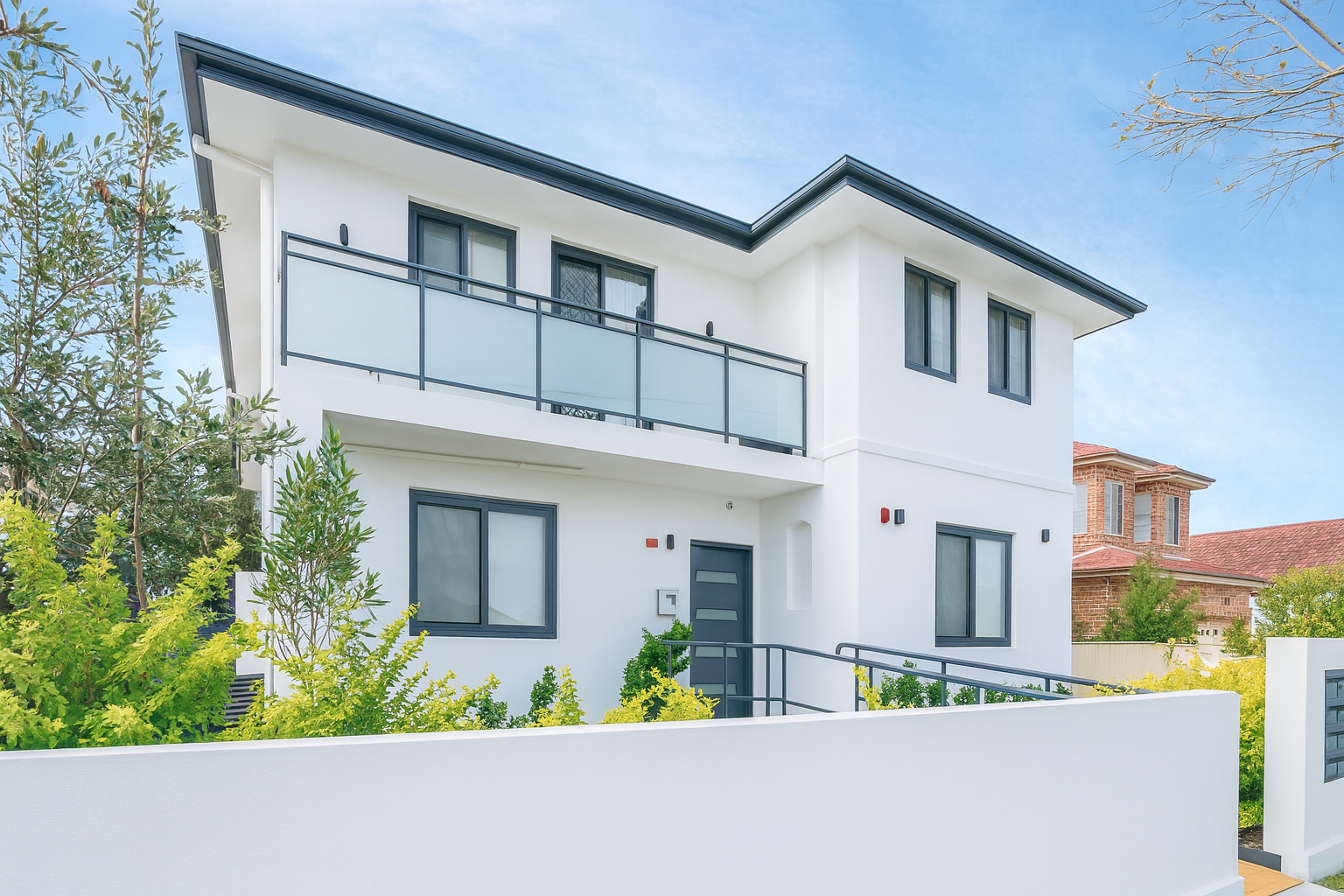
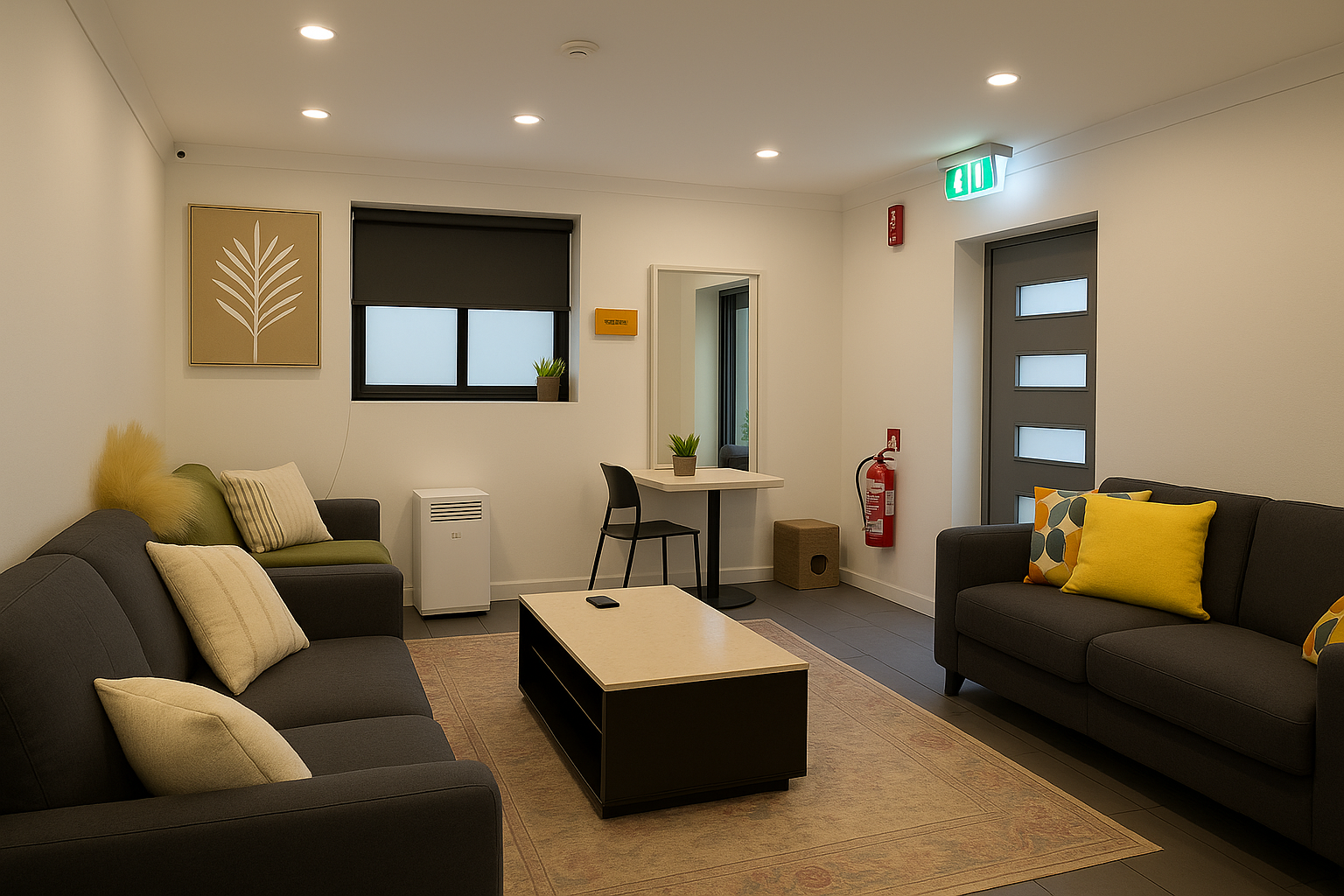
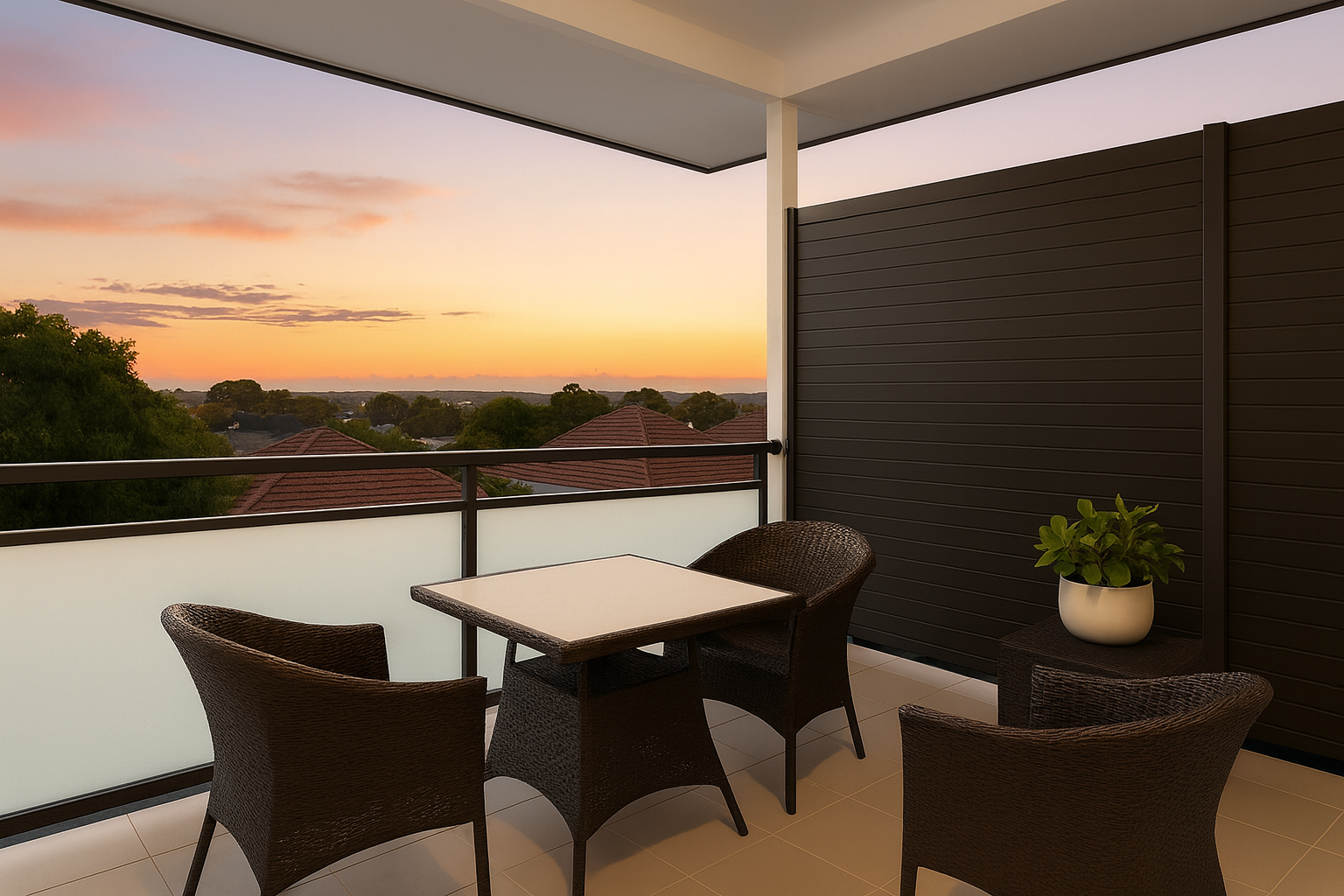







.webp)

.webp)















